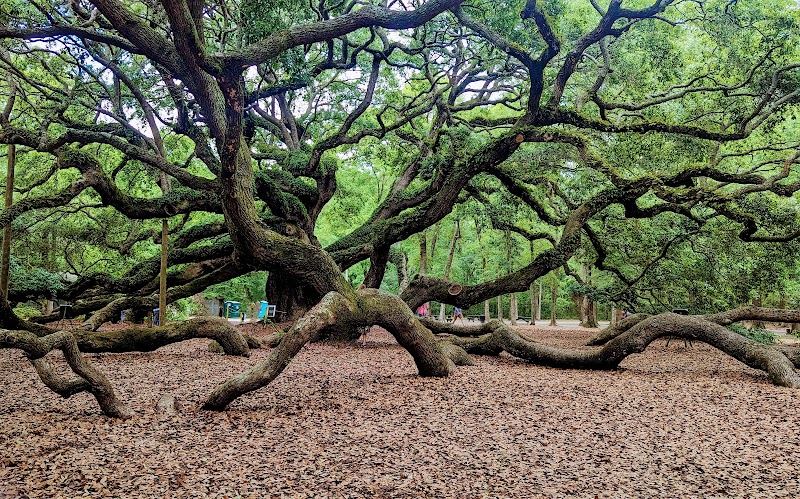
Tidal Trails and Wild Winds: Running Through Santee Coastal Reserve
Run along the winding coastal trails of Santee Coastal Reserve near Charleston, where pine forests and salt marshes create a varied terrain alive with the pulse of the Lowcountry. This guide offers practical tips and vivid insights to prepare you for an invigorating trail experience.
Hydrate Before and After Your Run
The coastal humidity can sneak up on you. Bring water or a hydration pack, and drink regularly to avoid fatigue during your run.
Wear Trail-Ready Shoes
Opt for shoes with solid tread to handle sandy, muddy, and occasionally slippery boardwalk sections along the trail.
Start Early or Late
Run during cooler parts of the day to avoid midday heat and reduce encounters with biting insects common in warmer hours.
Respect Tide Schedules
Some trails hover near tidal creeks and marshes. Check tide times to avoid unexpected flooding or overly muddy paths.
Tidal Trails and Wild Winds: Running Through Santee Coastal Reserve
Santee Coastal Reserve, just a short drive from Charleston, offers an exhilarating run where salt air tangles with pine scents and marsh waters dare you to keep pace. The Reserve’s network of trails spans roughly 4.5 miles, with gentle elevation changes that challenge without exhausting. You’ll find yourself navigating a mix of packed dirt and sandy paths weaving through coastal forests and skirting tidal creeks. The terrain invites you to feel the pulse of the Lowcountry’s fierce coastal energy—not just a run but a conversation with land and tide.
Mornings here hum with birdcalls from warblers and woodpeckers, while the breeze off the Intracoastal Waterway pushes forward like a natural pacer. There are moments when the trail opens to sweeping views across salt marshes, where sunlight dances on the water like a moving mosaic. These spots are prime for short breaks, breathing in the horizon before the trail dips back under the shade of loblolly pines and live oaks draped with Spanish moss that sway with a quiet authority.
Preparation is key: hydrate well and wear trail shoes with sturdy grip to handle occasional muddy patches and uneven boardwalk sections. Early hours or late afternoon provide the most manageable temperatures and light, giving you advantage over midday heat and insects.
From seasoned runners craving coastal terrain to casual adventurers wanting a fresh challenge, Santee Coastal Reserve rewards effort with a balanced dose of solitude and nature’s raw edge. Respect the tides and the land’s shifting moods here—they’ll shape your pace and prove that this isn’t just a run, but an active dialogue with a landscape fiercely itself.
Nearby Trips
All Adventures
Boat Charters
Water Activities
Adventures near Charleston, South Carolina
Discover the unique and memorable adventures that make Charleston, South Carolina special.
Frequently Asked Questions
Is the Santee Coastal Reserve suitable for beginner runners?
Yes, the reserve offers mostly flat to gently rolling terrain over packed dirt and sand paths, making it accessible to those new to trail running. However, some navigation skills and attention to tide schedules are helpful.
Are there any restroom or water facilities on the trail?
No restroom or potable water facilities are available within Santee Coastal Reserve, so plan to use facilities in Charleston before heading out and carry sufficient water with you.
Can I combine running with wildlife watching here?
Absolutely. Early mornings and late afternoons increase your chances of spotting birds like herons, warblers, and occasionally deer. Move quietly and pause at marsh viewpoints for the best observations.
How do tides affect the trail conditions?
Tides influence some sections near creeks and salt marshes, occasionally flooding low trail areas. Checking tide charts before your run helps avoid muddy or impassable segments.
Is nighttime running recommended in the reserve?
Due to limited lighting and natural trail hazards, nighttime running is generally not recommended. If you must run near dusk, bring a headlamp and stay on marked paths.
Are pets allowed on the trails?
Pets are permitted but must be kept on a leash. Bring water and be mindful of local wildlife, especially during warmer months when heat and insects can affect pets.
Recommended Gear
Trail Running Shoes
Essential for grip and stability on varying surfaces including sandy and muddy patches.
Hydration Pack or Water Bottle
Keeps you hydrated to maintain energy and focus throughout your run.
Insect Repellent
Protects against mosquitoes and ticks prevalent in summer and late spring.
Lightweight Jacket
Blocks wind and provides warmth during cooler, breezy runs in the off-season.
Local Insights
Hidden Gems
- "A quiet boardwalk overlooking Cow Castle Creek offers serene views without the common runner traffic."
- "The small salt marsh islands house nests for ospreys—watch for diving birds during summer afternoons."
Wildlife
- "Great blue herons and snowy egrets patrol the marsh edges."
- "River otters sometimes play near tidally influenced waterways."
- "Eastern box turtles can be spotted crossing shaded forest floor patches."
History
"Santee Coastal Reserve sits on land historically used for fishing and small-scale farming by local Gullah communities. Interpretive signs scattered near trailheads provide insight into this cultural heritage."
